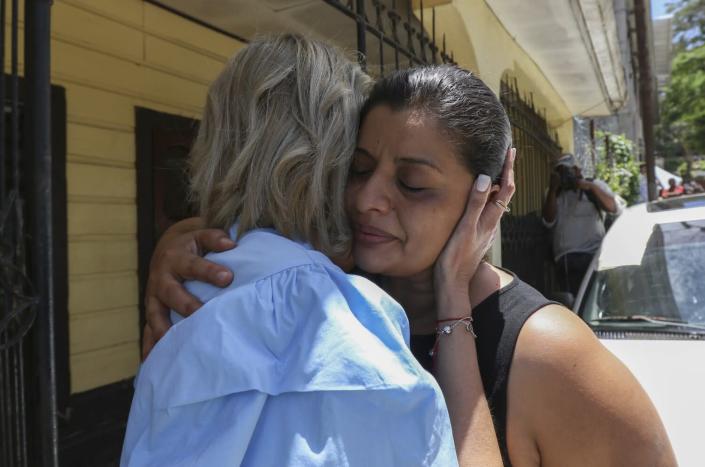Alejandro Miguel Andino Caballero had almost completed his university studies in marketing. His fiancee, Margie Támara Paz Grajeda, had earned a degree in economics.
Both viewed education as a means to launch careers and surmount humble origins in Honduras, where endemic poverty, crime, and corruption have long choked off avenues of social advancement.
But few doors opened for the ambitious young couple. The pandemic and two major hurricanes in recent years only dampened economic prospects in one of the hemisphere’s poorest nations.
So like many of their compatriots, Caballero, 23, and Paz Grajeda, 24, set out for the United States. Joining them was Caballero’s 18-year-old brother, who had also lost hope for his future in Honduras.
“They didn’t leave because they wanted to abandon their lives in Honduras, or because they didn’t like their country, or because they wanted to forsake their families,” the siblings’ mother, Karen Caballero, said Friday by telephone from her home in Las Vegas, Honduras. “They left because they had no opportunity here to advance.”

The three were among the 53 people — most, if not all, from Central America and Mexico — who perished after being smuggled in a sweltering tractor-trailer discovered Monday on the outskirts of San Antonio. It was one of the deadliest human-trafficking tragedies in U.S. history.
As authorities continue to identify the victims and notify next of kin, officials have slowly been releasing the names of those who died in the big rig — dubbed the “trailer of death” in the Latin American press. Their stories have resonated deeply in a region where emigration, despite its hazards, has long been the surest path to upward mobility in many communities.
CLICK HERE FOR FULL ARTICLE ON YAHOO NEWS
TYT Newsroom



